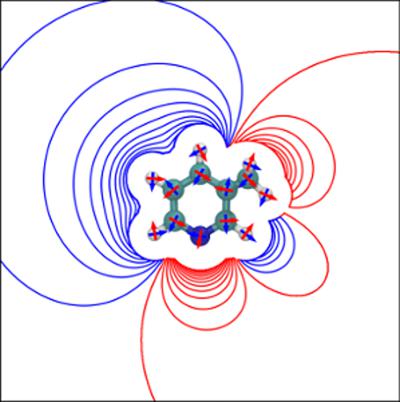当前位置:
X-MOL 学术
›
J. Comput. Chem.
›
论文详情
Our official English website, www.x-mol.net, welcomes your feedback! (Note: you will need to create a separate account there.)
pyEFP: Automatic decomposition of the complex molecular systems into rigid polarizable fragments
Journal of Computational Chemistry ( IF 3 ) Pub Date : 2017-12-26 , DOI: 10.1002/jcc.25149 Alexey V. Odinokov 1 , Nikita O. Dubinets 1, 2 , Alexander A. Bagaturyants 1, 2
Journal of Computational Chemistry ( IF 3 ) Pub Date : 2017-12-26 , DOI: 10.1002/jcc.25149 Alexey V. Odinokov 1 , Nikita O. Dubinets 1, 2 , Alexander A. Bagaturyants 1, 2
Affiliation

|
We present an open source tool able to describe intermolecular electrostatic interactions within the framework of the effective fragment potential (EFP) method. Complex molecular structure is subdivided into compact rigid fragments and parameters of their interactions are obtained from ab initio calculations. Automatic procedure allows for searching of these parameters into the existing database and merge new fragments into it. A set of standard fragments useful for the studies of organic semiconductors is also provided. Input files both for purely EFP and hybrid QM/MM calculations can be generated. The program is written in python and freely available on GitHub: https://github.com/ale-odinokov/pyEFP © 2017 Wiley Periodicals, Inc.
中文翻译:

pyEFP:将复杂的分子系统自动分解成刚性的可极化碎片
我们提出了一种开源工具,能够在有效片段电位 (EFP) 方法的框架内描述分子间静电相互作用。复杂的分子结构被细分为紧密的刚性片段,它们的相互作用参数从 ab initio 计算中获得。自动程序允许将这些参数搜索到现有数据库中并将新片段合并到其中。还提供了一组可用于研究有机半导体的标准片段。可以生成用于纯 EFP 和混合 QM/MM 计算的输入文件。该程序是用 Python 编写的,可在 GitHub 上免费获得:https://github.com/ale-odinokov/pyEFP © 2017 Wiley Periodicals, Inc.
更新日期:2017-12-26
中文翻译:

pyEFP:将复杂的分子系统自动分解成刚性的可极化碎片
我们提出了一种开源工具,能够在有效片段电位 (EFP) 方法的框架内描述分子间静电相互作用。复杂的分子结构被细分为紧密的刚性片段,它们的相互作用参数从 ab initio 计算中获得。自动程序允许将这些参数搜索到现有数据库中并将新片段合并到其中。还提供了一组可用于研究有机半导体的标准片段。可以生成用于纯 EFP 和混合 QM/MM 计算的输入文件。该程序是用 Python 编写的,可在 GitHub 上免费获得:https://github.com/ale-odinokov/pyEFP © 2017 Wiley Periodicals, Inc.


























 京公网安备 11010802027423号
京公网安备 11010802027423号